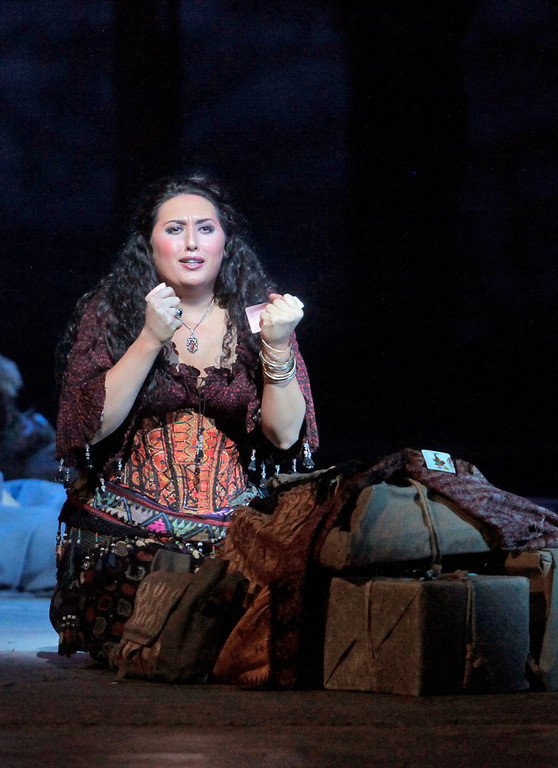With the familiar Carmen Prelude, a classic production composed by George Bizet, the opera Carmen was opened at The Metropolitan Opera (the MET) in Lincoln Center. The production itself wasn’t that much different from the previous seasons with the exact costumes and setting. Although the story was vivid and the setting was impressively done, people who returned for surprises may found the piece predictable with the same story and no new elements—maybe even with a little shock on the singing.
A special note on the modern dance at the beginning of Act I and Act III—it was a phenomenal transition into the actual opera. In both acts, the dancers Maria Kowroski and Eric Otto were skillful and thus successfully brought the audience from the lousy reality into the mood of Carmen, which could be interpreted as both tragic and dramatic. With the irregular curtain opened, the red light at first foreshadowed the ending (especially when in the end red light was presented once again); the blue light signified the sharp switch in emotions between Carmen and Don José. Pairing with the lighting, two distinctive styles of dance, credited to Christopher Wheeldon, were presented. One was passionate but seemingly morose; the other was smooth but with a sense of coldness in mood. Aside from the other expected, this was actually a splendid detail that I’m glad the directors decided to maintain.
Personally, I had never been to an opera before, so this would have been a good first experience if not for the singing of Anita Rachvelishvili (Mezzo-Soprano), the supposedly beloved Carmen. Compared with Micaëla (Kate Royal, Soprano), who preformed in such a high quality, perfecting in notes hitting and emotional content, Carmen failed to impact the audience with the entrance of her character. Her voice was plain and powerless. As the typical Carmen, one’s voice should be at least energetic, not to say Carmen is such an interesting protagonist, so it is the least for one to look for the singer’s own interpretations. With such a high expectation, more disappointment kicked in when Carmen appeared on stage. Even the famous for its gypsy tune song “Habanera” couldn’t make up for Carmen’s lack of sensitivity in her act. Even though she continued to correct herself, one could tell that she wasn’t in her best condition when she gave up the attempt to hit and maintain the high notes in one of her duet songs with Don José.
Don José, on the other hand, was such a distinguishing display by Yonghoon Lee (Tenor). In the opera, the singer was in sync with his character, and delivered a strong message throughout the production. Having been as Don José for several times in his career, Lee continued, if not better, to pursue the audience with his role.
Even though lacked a little surprises, the sets and costumes were still suiting for the acts. Like the supposedly consistent music, conducted beautifully by Michele Mariotti, the sets and costumes became a tradition in Carmen, though unlike the music, it was only so in the MET.

Carmen in “Carmen” (credit to http://theclassicalreview.com/2012/09/rachvelishvilis-sultry-carmen-strikes-sparks-at-the-met/)

